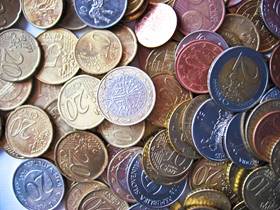The dividend tax in the Netherlands is a type of income tax on dividend payments made to the company’s shareholders. According to the Dutch taxation law, there is a fixed tax on dividends. Certain exemptions apply if the company meets some specific criteria. Our lawyers in the Netherlands can provide complete information about tax compliance for any Dutch company.
Table of Contents
The Dutch dividend tax
The Netherlands has a maximum tax rate for dividends of 25%. However, Dutch companies are not subject to taxation on dividends if they observe the provisions of the participation exemption. The Dutch participation exemption applies to dividends and capital gains derived from shareholdings of at least 5%. In order to qualify for the participation exemption, subsidiaries need to be active and to be subject to the Dutch tax test (they need to be taxed according to Dutch tax principles). Moreover, less than 50% of the assets of the company need to be passive assets. If Dutch subsidiaries fulfill these conditions, their dividend income is not subject to tax.
For companies that do not qualify for the participation exemption in the Netherlands, any profit derived from the shares will be taxed at the normal corporate tax rate. Subsidiaries in the Netherlands may be granted a special credit if they have been subject to corporate income tax but do not fulfill all of the necessary requirements to fully benefit from the participation exemption. The tax credit has a maximum amount value of 5%.
Our Dutch lawyers can offer you complete information about the specific provisions that apply to the dividend income in the Netherlands. Our lawyers can also give you details about the double tax treaties signed by Netherlands.
Corporate taxation in the Netherlands
According to Dutch law, companies incorporated in the Netherlands are Dutch residents and are liable on their worldwide income. Non-resident companies operating in the Netherlands are only taxed on their income produced in the country.
The corporate income tax in the Netherlands is calculated for all of the profits derived from conducting the business in the country, including foreign-source incomes, passive incomes and capital gains.
Apart from the dividend tax issues to consider, business owners that will engage in the supply of goods and services subject to value-added tax will also need to complete the process for VAT registration in Netherlands. This is a mandatory step for businesses that will engage in commercial services subject to this tax. Our team can give you more details and provide you with the needed assistance for registration.
For more information about taxation in the Netherlands, please contact our law firm in the Netherlands. We can provide complete tax compliance services.

